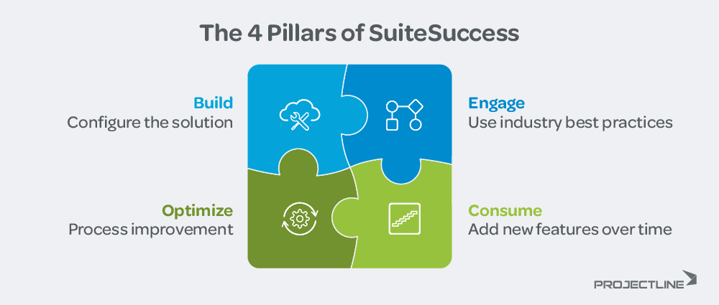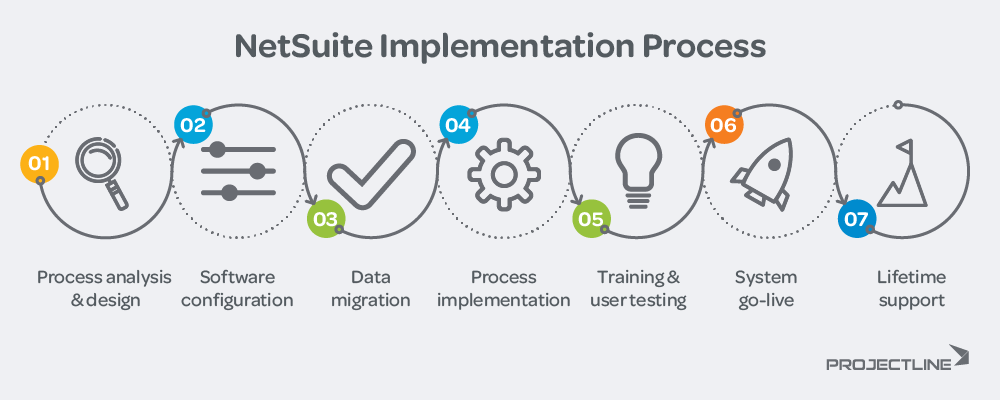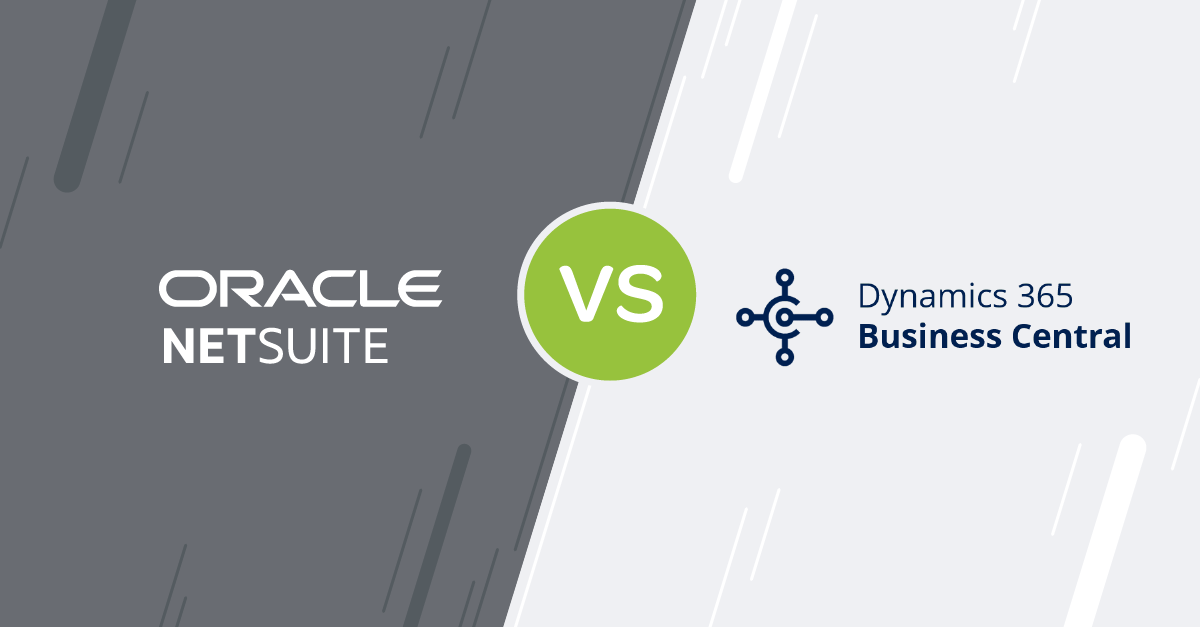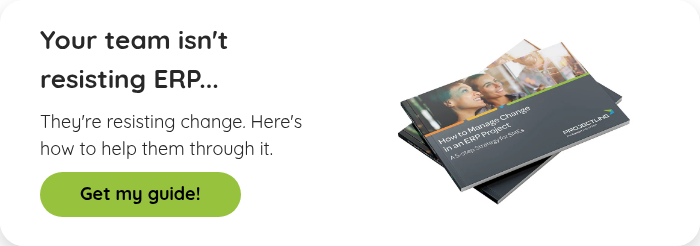Blog
Share this
The Complete NetSuite Implementation Guide for SMEs

by Jalene Ippolito on January 09, 2024
As you’re researching NetSuite, you’ll discover there are a few ways to tackle your implementation project. It’s important to understand the impacts of each approach before you choose a path. Unfortunately, we’ve seen companies re-grouping part-way through their project because their expectations didn’t match the implementation methodology they chose. These situations can be remedied (with the help of the right implementation partner), but ideally, you’ll avoid them altogether by choosing the best NetSuite implementation approach for your needs right from the start.
Our goal in this post is to provide the information you need to make an informed decision and set yourself up for a successful NetSuite implementation.
What’s in the NetSuite implementation guide…
- How do you buy NetSuite licenses?
- Who implements NetSuite?
- What are the advantages of working with a NetSuite partner?
- What are the steps in a NetSuite implementation?
- How can you make your NetSuite implementation a success?
- NetSuite implementation FAQ
How do you buy NetSuite licenses?
You can purchase NetSuite subscription licenses directly from NetSuite or through a NetSuite Solution Provider who sells, implements and supports NetSuite software. If you buy through a Solution Provider (like ProjectLine), your subscription contract is still with NetSuite. Your partner will negotiate the terms on your behalf, with access to the same pricing as the NetSuite direct sales team.
Who implements NetSuite?
1. Self-implementation
While you can technically implement NetSuite on your own, we don’t recommend it. To be successful with a NetSuite self-implementation, you need dedicated in-house resources with extensive NetSuite ERP experience and deep knowledge of business processes. For small and mid-size companies, this typically isn’t realistic. The do-it-yourself approach often leads to increased timelines, budgets and more complications along the way.
2. NetSuite Direct implementation
If you choose to buy the software directly from NetSuite, their team will implement your system using the SuiteSuccess model or, in certain cases, they’ll have a NetSuite Alliance Partner do the implementation. Some Alliance Partners will use the SuiteSuccess model, but others will use a more traditional implementation approach (more on that below).
3. NetSuite Solution Provider implementation
When you work with a NetSuite Solution Provider (often referred to as a partner), you get deep NetSuite software expertise, plus extensive business process consulting. Your partner becomes an extension of your team, going deep to understand every facet of your business to create a solution that truly fits your business, now and over the long term.
Some partners will use the SuiteSuccess methodology and others will use a more traditional ERP implementation approach. At ProjectLine, we understand that different companies have different needs. That's why we offer both implementation approaches, so we can provide a NetSuite solution that considers your requirements, complexity and budget.
What are the advantages of working with a NetSuite partner?
Your ERP is the core system that runs your business. You simply can’t afford to have an implementation that falls short of expectations.
That’s why having a partner that’s invested in your success is essential. In our experience, that’s the primary advantage of working with a NetSuite implementation partner instead of buying direct. Here are a few ways this shows up in your experience.
- NetSuite partners focus on the business process first. This is essential to a successful implementation, especially if you’re a larger company with more complex processes. Trying to fit the processes of a $50M company into a predefined ‘template’ simply isn’t effective.
- NetSuite partners tend to put a higher priority on the customer relationship. Now, of course, we can’t say this is true of every partner – that’s why it’s important to select your partner carefully. But, with a large organization like NetSuite, you can expect to see higher resource turnover which often limits the knowledge sharing of your business. If your implementation consultant never talks to the people providing post-implementation support, you’ll likely run into challenges.
- NetSuite partners can offer greater integration and customization expertise. In our experience, integrations often don’t fit within the SuiteSuccess template, which can lead to challenges if you implement directly with NetSuite. If you need integrations or customizations, you’ll want to vet the partner’s experience carefully as not all partners are equal in this area. At ProjectLine, it’s one of our specialties – we’re not scared of big business challenges that require innovative solutions.
Related: 5 Tips to Select the Best ERP Implementation Partner for Your Business
What are the steps in a NetSuite implementation?
Option 1: SuiteSuccess methodology
As mentioned, NetSuite and some partners use the SuiteSuccess methodology to streamline the implementation process.
What is SuiteSuccess?
SuiteSuccess standardizes the NetSuite implementation process with a predefined configuration based on best practices for your industry. While this approach can shorten your implementation timeline using predefined workflows, KPIs, dashboards and more, you’ll often have to change your business processes to fit the software, which can be limiting.
The SuiteSuccess implementation approach follows four phases: Build, Engage, Consume and Optimize.

- Build: The solution is configured according to the SuiteSuccess edition you purchase, which determines the modules you have access to and how they’re configured.
- Engage: Leverage best practices for each industry and role including workflows, KPI reports, dashboards and metrics.
- Consume: NetSuite’s stairway provides a phased implementation approach where you gradually add in new features over time.
- Optimize: You’re always on the latest release, giving you the benefit of updated leading practices, new features and ongoing process improvement.
What type of company is a good fit for SuiteSuccess?
In our experience, SuiteSuccess typically makes sense for small companies (under $10 million in revenue) with simple processes. For companies that fall in a higher revenue bracket and have more complexity, a traditional ERP implementation approach is the better bet.
Pros of SuiteSuccess
- With a SuiteSuccess implementation, you could be live with NetSuite in as little as 100 days.
- Since you’re using a predefined system configuration, there’s less risk of scope creep and budget overruns.
- The SuiteSuccess approach is a budget-friendly way for small, simple companies to implement ERP and create a foundation to scale their business.
Cons of SuiteSuccess
- Since SuiteSuccess is a more prescriptive model, it doesn’t typically involve much consulting on business processes – the software is configured based on a predefined template. This can force you to change your processes to fit the software and create the need for workarounds.
- SuiteSuccess implementations can’t be customized. Given that most companies have requirements that fall outside the standard, this can be quite limiting. If you choose to customize your system in a later phase, you may need to find a new NetSuite partner who has more expertise outside the SuiteSuccess model.
Option 2: Traditional ERP implementation
If you choose a traditional ERP implementation process, you'll have more flexibility to tailor your ERP software to your business.
What is a traditional ERP implementation?
A traditional ERP implementation approach doesn't use predefined system configurations. Extensive process analysis is done before creating a system design that considers your unique workflows and requirements. While still incorporating business process best practices, the specifics of each implementation project are unique.
With a traditional implementation approach, your NetSuite project will follow these seven steps, with the details and timeline determined by your requirements.

- Process analysis and design: Your partner will do a deep dive into your processes to create your NetSuite system design. This step takes some time, but it’s worth the effort up-front, rather than spending money on modifications later.
- Software configuration: Your NetSuite partner will set up your system based on the approved design document.
- Data migration: Your team will clean your existing data before importing it into your NetSuite system.
- Business process implementation: Your partner will configure workflows, reports, etc. to handle the business processes you mapped out in the design phase.
- Training and user acceptance testing: Your core users will learn the system using a combination of NetSuite materials and partner-led training. It’s a good idea for users to have basic NetSuite training before they start testing so they know how to perform processes.
- System go-live: You start using your NetSuite system!
- ERP post-implementation support: You’ll continue working closely with your partner to train users and fine-tune your processes before moving into support and continuous improvement mode.
Pros of a traditional ERP implementation
- You can tailor your NetSuite solution to your business needs, ensuring that your processes flow the way you need and reducing the chance of users creating workarounds.
- You have full flexibility to customize and integrate with other solutions as needed to fully optimize processes across all areas of your business.
- A better-fit ERP solution often leads to higher user adoption and ROI.
Cons of a traditional ERP implementation
- A traditional ERP implementation can take longer (3 to 6 months on average) and cost more. Your NetSuite partner can work with you to develop a phased implementation plan that will keep costs and timelines in check.
- There is a greater risk of scope creep with a traditional implementation, but the right partner can manage this with proper project management.
Related: What to Expect in Your ERP Implementation
How can you make your NetSuite implementation a success?
We can’t stress enough the importance of your relationship with your NetSuite implementation partner. They’ll ensure your system meets your needs and guide you through the process.
But there are a few things you can do to ensure your implementation is successful.
- Familiarize yourself with the most common NetSuite implementation mistakes so you can plan for the things that might trip you up.
- Allocate enough time for training. It’s a big change – your people will be learning both new systems and new processes, so you don’t want to rush this stage.
- Create a proper ERP change management strategy to ease the transition and improve user adoption.
- Document your new processes. It takes time, but it’s worth it to reinforce new processes and train future hires.
Partner with ProjectLine for your NetSuite implementation
As your North American NetSuite partner, we'll guide you through the implementation process and support you as your business needs change. We’re a software company, but people come first – we know this is a big undertaking and it impacts every department and every individual in your company. We’re here to support you today, tomorrow and 10 years from now.
Start your NetSuite journey
Whether you’re gearing up for an implementation, need NetSuite support or simply want to learn more about NetSuite, our team of experts is here to help. Contact our team to get started.
Frequently Asked Questions
How do you decide which NetSuite modules you need?
The NetSuite modules you need will be determined by your business requirements. A NetSuite Solution Provider can help you determine the right modules for your business.
How long does it take to implement NetSuite?
NetSuite implementation timelines can vary based on the scope of the project, but typically range from 3 to 6 months.
What’s the cost of a NetSuite implementation?
The cost of a NetSuite implementation will depend on the number of NetSuite modules being configured, the complexity of your business processes, and the scope of any customizations or integrations you need. You can find more information in our NetSuite Pricing Guide.
What’s the difference between SuiteSuccess and a traditional ERP implementation methodology?
SuiteSuccess is a templated implementation model that uses predefined configurations, workflows and reports. In a traditional ERP implementation, the system is designed and configured based on your business processes.
Share this
Stay in the Know!
Join other SMEs who receive our monthly ERP insights, tips and best practices.
You may also like

ERP Funding for Canadian Businesses

Should You Work with a NetSuite Implementation Partner or Go Direct?




